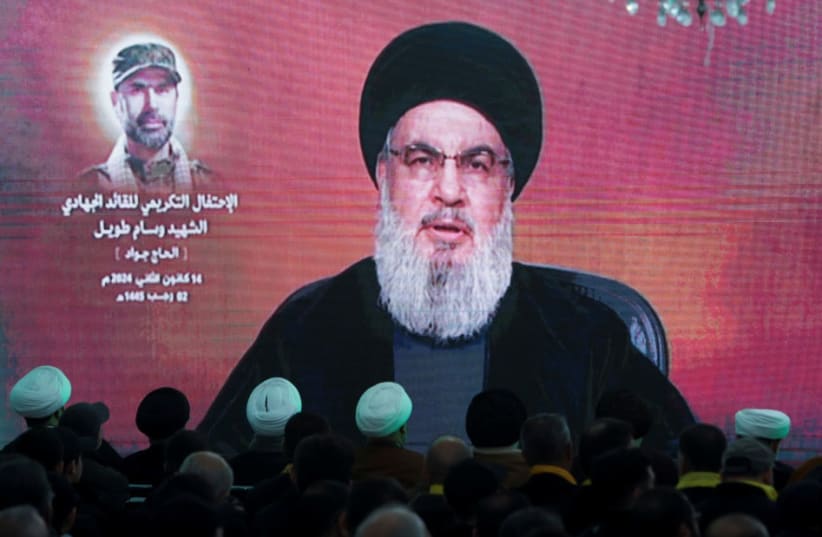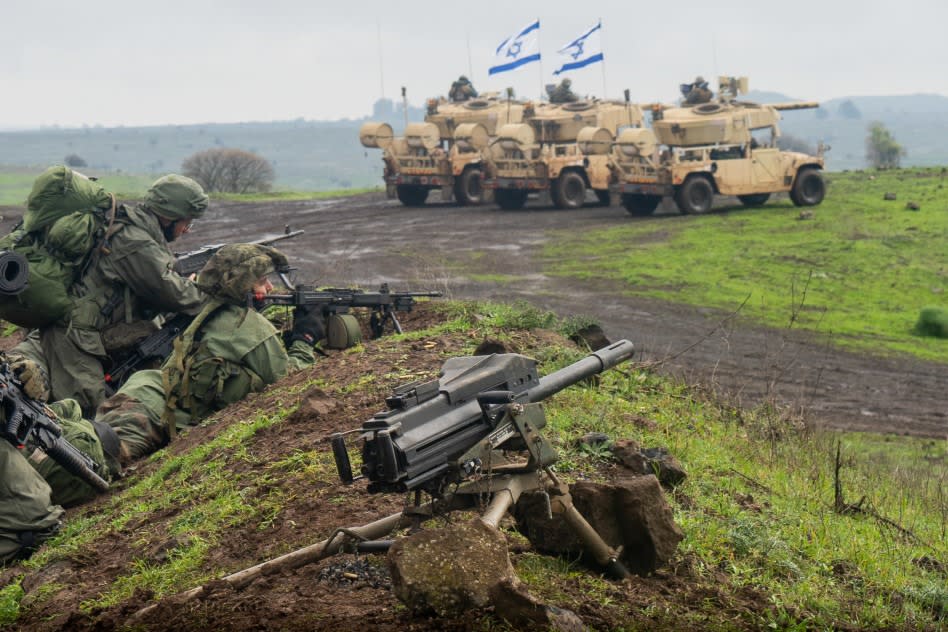by Dr. Liraz Margalit
Signs suggest Hezbollah leader Hassan Nasrallah is unraveling. Has emotion replaced rationality?
 |
One of Hezbollah leader Hassan Nasrallah's greatest assets, one he crafted and cultivated and became his hallmark, is his ability to convey swagger and cynicism in his speeches. Around 70% of the messages conveyed in speeches are not related to the content itself, but to his body language, intonation, and facial expressions.
With Nasrallah, it's definitely in his intonation; every word he says is emphasized, he speaks with a half-amused grin that gives his listeners the feeling that he has another trick up his sleeve.
Swagger conveys self-confidence, and therefore anyone who hears Nasrallah manages to fall for his image - if he's swaggering, he probably knows something we don't.
The man has made psychological warfare into an artform. He doesn't do too many interviews, which creates expectations for his speeches, not only among his own public but also among viewers abroad, especially in Israel. He is very calm and composed, which helps him exude great self-confidence.
How has Nasrallah lost his confidence?
Something has changed in Nasrallah's last two speeches. Both of these speeches were made in the same week, which is the first sign that something managed to shake him.


The last two speeches also lacked his characteristic eloquence. Fluent speech is controlled by the rational parts of the brain, but in the last speech, emotion took over rationality. The speeches did not weave pearls of wisdom or linguistic expressions like Nasrallah loves to do - which all come from calculated planning of his speeches. Rather, these were particularly aggressive speeches and the primary emotion that emerged from them was anger.
When a calculated and strategic person like Nasrallah "loses it," it is a sign of the crisis he is in. On one hand, he is not interested in war with Israel, and on the other hand, he is losing points in the war in the North, which is intensifying. So far, he had the upper hand - the fact that the North is empty of Israeli residents is a major achievement for him, but the recent blows the IDF dealt to key Hezbollah figures change the equation.
And if the reality on the ground is not enough, Defense Minister Yoav Gallant began to describe to him about those blows. He made a statement showing his ability "to speak Arabic," to understand the rules of the game. After he finished counting his achievements in the South, Gallant moved to the North.
"Hezbollah has gone up half a [kilometer], we have taken it up one level, we can go up to 10. We can attack not only within 20 kilometers, but also within 50 kilometers. [We can attack] Beirut and any other place," he added, with a meaningful wink - "to the [IAF] planes flying now above Lebanese skies, they have targets, they know how to attack them. We are ready to apply a tourniquet from Gaza to Beirut."
As a result, Al Jazeera quoted Defense Minister Gallant: "The equations that Hezbollah thought it had established collapsed when we decided to attack in Damascus, Beirut, Sidon, and Nabatieh."
This has already thrown Nasrallah off track, and in his latest speech he said: "He talks about 50 kilometers and about Beirut, but Hezbollah has an enormous and precise missile capability that extends from Kiryat Shmona to Eilat. The truth is that we are faced with two options - resistance or submission, but what is the greater price? And I say that the price of submission is high and dangerous."
Nasrallah has no choice, he must continue the "chicken" game against Gallant. Although he wants people to think he has a well-thought-out plan where each step is calculated and planned, he has no idea what the next step will be. He does not want war but he must retaliate, and in such situations of "walking on the edge" neither side has the ability to know when responses and counter-responses will spiral out of control.
The "chicken" game is a game of who will surrender first. The game simulates two drivers speeding on a narrow road, each towards the other. One of them must swerve, otherwise there will be a head-on collision. The "chicken" (the coward) is the driver who "chickens out" and swerves at the last moment. Each player would prefer the other player to give up. A situation in which neither will give up will result in the worst outcome for both.
The tipping point is the stage in the game where there is no turning back, so Israel needs, on one hand, to show that it is not surrendering, which Gallant does excellently. On the other hand, Nasrallah will not be willing to run away with his tail between his legs. Therefore, it will be good for us to provide him with a reason to give up while saving face.
Dr. Liraz Margalit
Source: https://www.jpost.com/israel-hamas-war/article-788899
No comments:
Post a Comment